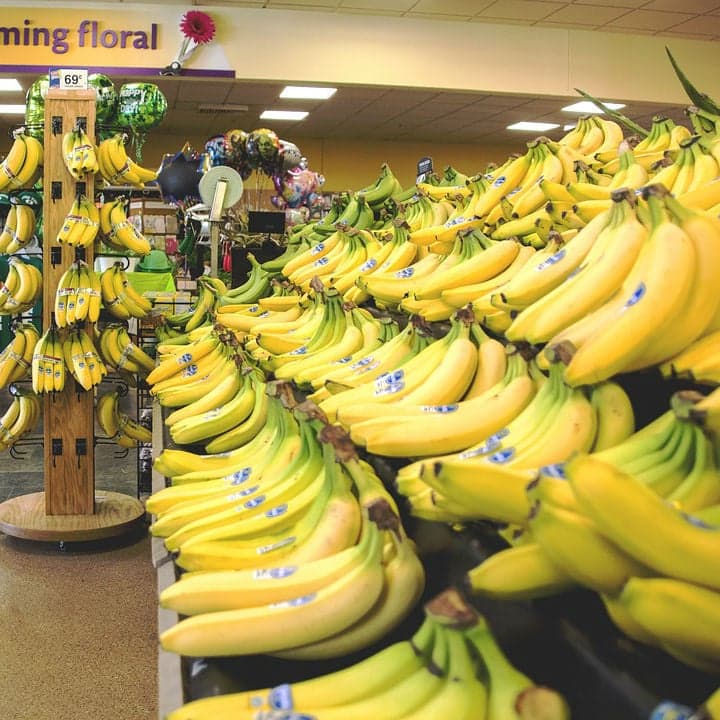Although overall retail spending has continued to grow, factors such as e-commerce and an abundance of shopping malls are changing the way people shop. Today, e-commerce sales are steadily increasing, with Amazon sales rising from $16 billion to $80 billion between 2010 and 2016, and nearly half of all United States households are now Amazon Prime subscribers. Also, according to Cowen and Company’s research analysts, between 1970 and 2015 the number of shopping malls in the United States grew more than twice as fast as the population.
globalEDGE Blog - Page 88
Publish Date:
Flipping on the television, powering up a gaming device, and relaxing on the couch has become a routine for millions of people around the globe—in fact, it’s estimated that more than 1.8 billion people are playing video games worldwide on a range of devices from smartphones, to game consoles and computers. In the US alone, there are 2,858 video game companies and 65,678 workers within those companies based on Forbes estimates. According to Newzoo, these people along with the billions of players will help the market value grow 7.8 percent to $108.9 billion in 2017. The major leader in the market is the mobile games sector, which accounts for 42 percent of revenue—$46.1 billion—and the profound interest from the Asia-Pacific market. With the current growth expected to continue, the video game market is expected to reach $128.5 billion by the year 2020.
Publish Date:
With over $25 billion in global sales, the banana is the world’s most popular fruit. However, the spread of a fungal disease, commonly known as Panama Disease, is threatening the existence of the banana as we know it. The soil-borne fungus has already damaged approximately one-third of Asia and Australia’s banana plantations and has spread west to the Middle East and Africa. If the disease makes its way to Latin America and the Caribbean, which account for 85% of world banana exports, it could be game over for the banana as we know it.
Publish Date:
There is no doubt that studying abroad has become one of the most established business sectors in international education. The number of students studying abroad is increasing every year and this is encouraging institutions and governments to tap into the market. Becoming a part of this growing industry has a great business impact on educational institutions, organizations, and faculties.
Publish Date:
Created in 1960 via the union of newly independent British and Italian Somaliland, the coastal country in the Horn of Africa has a long history of instability, insurgency, and anarchy. Less than a decade after its creation, the elected government of Somalia was overthrown in a coup that ushered in an authoritarian socialist rule that saw the nationalization of the economy of persecution of political dissidents. The authoritarian government collapsed in 1991, after more than 30 years in power, creating a power vacuum that led to decades of civil strife and anarchy with a lack of central government.
Publish Date:
As the 2018 Winter Olympic Games transcends upon us, it is an interesting time to research the Olympics business model and gain an understanding of their past successes and cloudy future
When Budapest, a frontrunner to host the 2024 Summer Olympic Games dropped out of the running, an unofficial signal was shown to the Olympic Committee that changes need to be made for the current Olympics business model. The reason being, “to avoid a loss of international prestige” as said by parliament leader, Lajos Kosa. On top of this, the 2022 Olympic Winter Games bids came down to two prospective bidders. Almaty, Kazakhstan and Beijing, China. This was due to a fair amount of potential cities failing to compete for an Olympic bid. Events like this make the rest of the world wonder, what is happening to the prestige of the Olympics?
Doug Barry, Conover + Gould Strategy Group
Publish Date:
Last fall, college students participated in the annual ritual of moving into campus housing. It’s different now than it was in the 1970's and 80's when some of you readers were heading off to college.
One big difference is the number of students going abroad for at least a year of their university education. Yes, there were such students back in the day, but their numbers paled compared to the traffic generated across the oceans this month. Passing through Boston’s Logan airport on a busy moving-in weekend provided visual confirmation of this phenomena. Young people from everywhere were disembarking flights, wearing their college sweatshirts: Boston University, MIT, Harvard and many others were represented. Some of the kids carried their teddy bears.
Publish Date:
With a population just over half a million and total land area of 1,000 square miles, Luxembourg is one of the smallest countries in the world. Despite their size, Luxembourg is a major player in the global financial industry. With $4 trillion in assets in custody of financial institutions, the landlocked Central European Grand Duchy is the second largest investment fund domicile in the world, behind only the United States. The financial industry in Luxembourg is responsible for over 35% of the Grand Duchy’s $62 billion GDP (PPP).
Publish Date:
Trading between cryptocurrencies, also known as virtual currencies, continues to grow as government legalization paves the way for international investment. Japan and South Korea, in particular, have seen significant increases in trading activity and continue to set records for the market.
Publish Date:
Every year, millions of people go shopping the weekend after Thanksgiving. However, people are choosing to shop online on Cyber Monday rather than visit retail stores on Black Friday. Cyber Monday was one of the biggest shopping days in the United States. This year, Americans spent $6.59 billion on Cyber Monday alone, according to data from Adobe Analytics. This large amount of online orders so close to Christmas puts extra stress on retailers trying to avoid late deliveries and unfilled orders. Normally during the holiday season, the number of late deliveries to households doubles, but this year, companies are having a particularly hard time delivering all of their orders on time.












